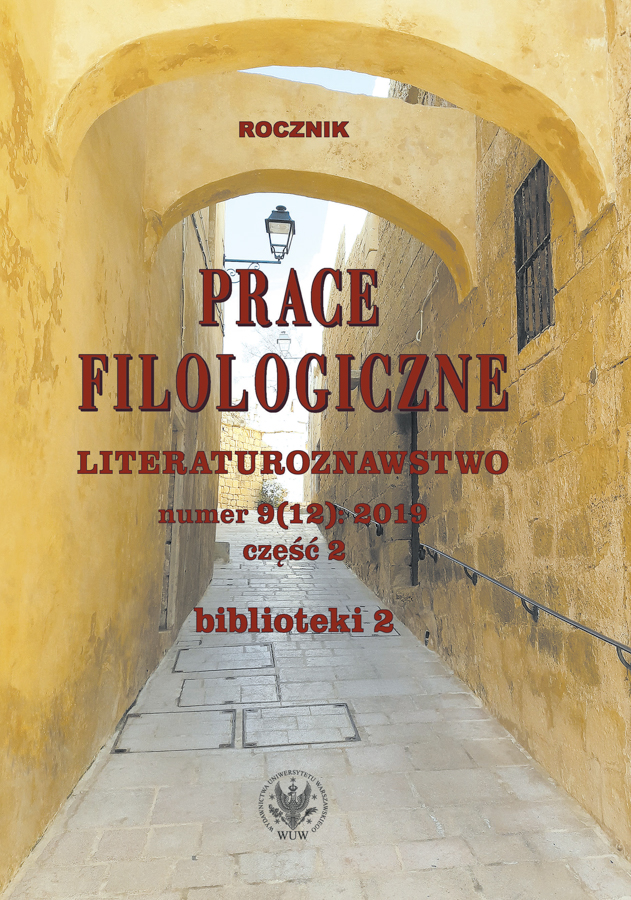Biblioteka Betel
The Library of Bethel
Author(s): Paweł KuligowskiSubject(s): Language and Literature Studies, Theoretical Linguistics, Studies of Literature, Philology
Published by: Wydawnictwa Uniwersytetu Warszawskiego
Keywords: Babel;Bethel;the humanities;modernism;gnosis;
Summary/Abstract: The essay starts with Borges and his unsurpassable account of the Library of Babel, interpreted as an ad hoc allegory of the humanistic erudition and its close affiliation with gnosis or, more precisely, its modern variety. The latter is conceived here as described by Eric Voegelin. The humanistic ideal of knowledge, in a manner of speaking, ‘immanentises the eschaton’ by the sheer fact of lending it a form, ‘visualised’ by Borges as the Library of Babel, a ‘gnostic’, inner-worldly equivalent of the Beyond. In a typically modern fashion, the Library replaces the mystics with aesthetics. The transcendental figure of Christ is reduced to an all-too-human figure of Narcissus. And yet, somehow, there is more to books than just words. By reading Ovid in the light of Plato, the essay penetrates and reflects the dual, ambivalent nature of the humanistic − or, shall we say, humane − pursuit of knowledge, gnostically ‘narcissistic’ and platonically ‘Christian’ at the same time. It is only then, at the close of the essay, that we are back with Borges: “Through this space [the Library] [...] there passes a spiral staircase which winds upward and downward into the remotest distance”. Deep within the periodically infinite Library of Babel, there lurks another one − the Library of Bethel − Jacobean, transcendental, surreal.
Journal: Prace Filologiczne. Literaturoznawstwo [PFLIT]
- Issue Year: 2/2019
- Issue No: 9 (12)
- Page Range: 127-141
- Page Count: 15
- Language: Polish

